I’m a Doctor and These Are the COVID Symptoms You Should Be Concerned About
Here are the symptoms to look out for.

The bad news? With a new transmissible strain of COVID-19, we are in the midst of a serious surge of infections. “Seeing variants is normal and expected from viruses,” says Tanya Altmann, MD, FAAP, who confirms an “uptick” in current infections. “The good news is the new COVID variants seem less serious than earlier strains,” she says. As a result, there are significantly fewer hospitalizations and serious illnesses. “COVID has become one of the regular viruses that we may catch every year,” she says. While many symptoms of the virus are common and shouldn’t raise concern, there are a few more serious ones to look out for, she warns — especially in children.

Dr. Altmann explains that some of the signs you are infected could be easily confused with other illnesses. “Symptoms of COVID now are similar to many of the other viruses and infections going around right now,” she says.

One of the key COVID symptoms, which could also be confused with other illnesses, is a fever, she says.
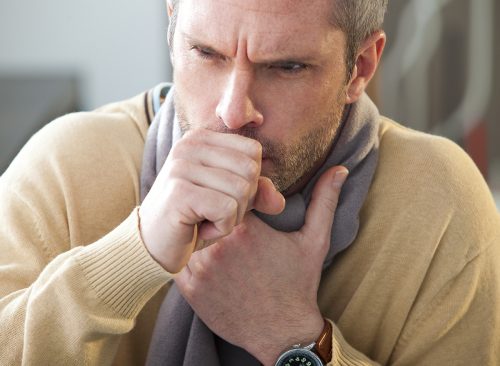
Many people who suffer from COVID experience a cough at some point. However, this isn’t a concerning symptom.
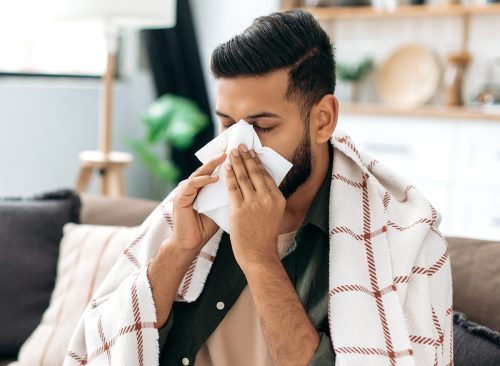
One of the earlier symptoms of COVID-19 is a runny nose. However, many people brush it off as allergies or a common cold.

Fatigue is another symptom common for those infected with COVID or other types of illnesses, including the cold and flu.

Finally, another more common symptom of a COVID-19 infection is stomach issues. This could include nausea, upset stomach, or diarrhea.
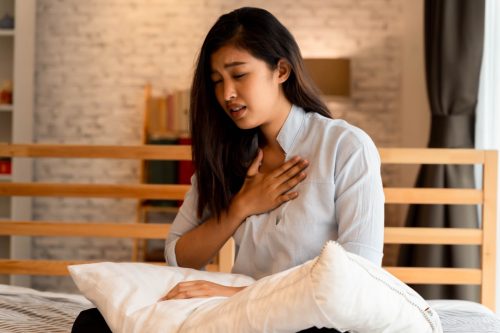
Although serious infections are less common in kids, “it’s always important to be aware of more serious signs where you should seek medical care right away,” says Dr. Altmann. One of the first symptoms that should signal a red flag is if someone has trouble breathing.

Another serious symptom to look out for in a COVID-19 infection? “Not being able to keep fluids down,” Dr. Altmann reveals.
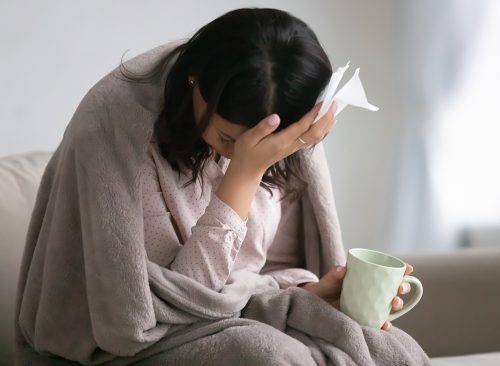
Finally, if someone is acting really sick, you should be concerned, Dr. Altmann says.
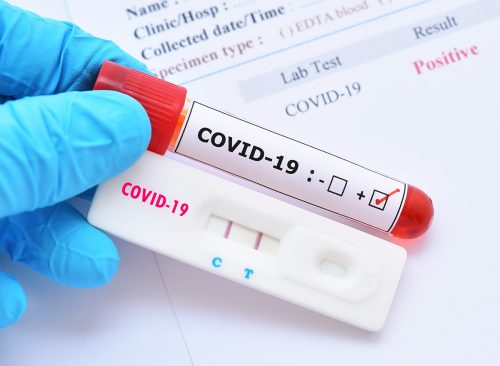
If you or your child experience any symptoms, Dr. Altmann suggests testing ASAP. “Rapid home antigen tests can be used on kids, just like on adults. That said, if you are suspicious of COVID and the rapid antigen at home is negative, getting a PCR at your doctor’s office or a lab can give you a more definite answer,” she said.
RELATED: Surprising Signs You’ve Already Had COVID

“We do want kids to be in school as much as possible this year, but everyone should stay home for at least 5 days when they have COVID,” reminds Dr. Altmann, “When you return to school and if you need a negative test or to wear a mask, it can depend on your local public health guidelines.”














